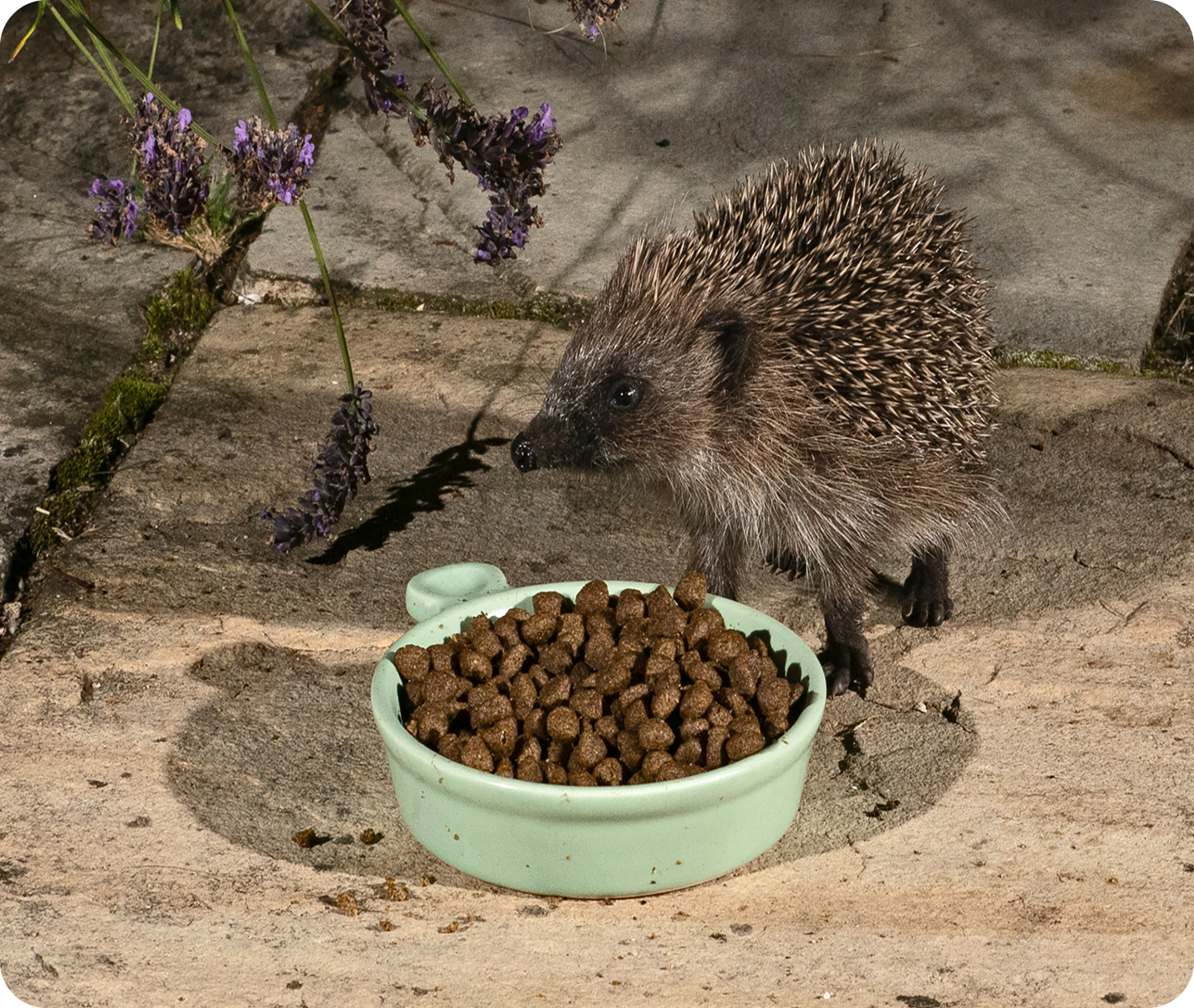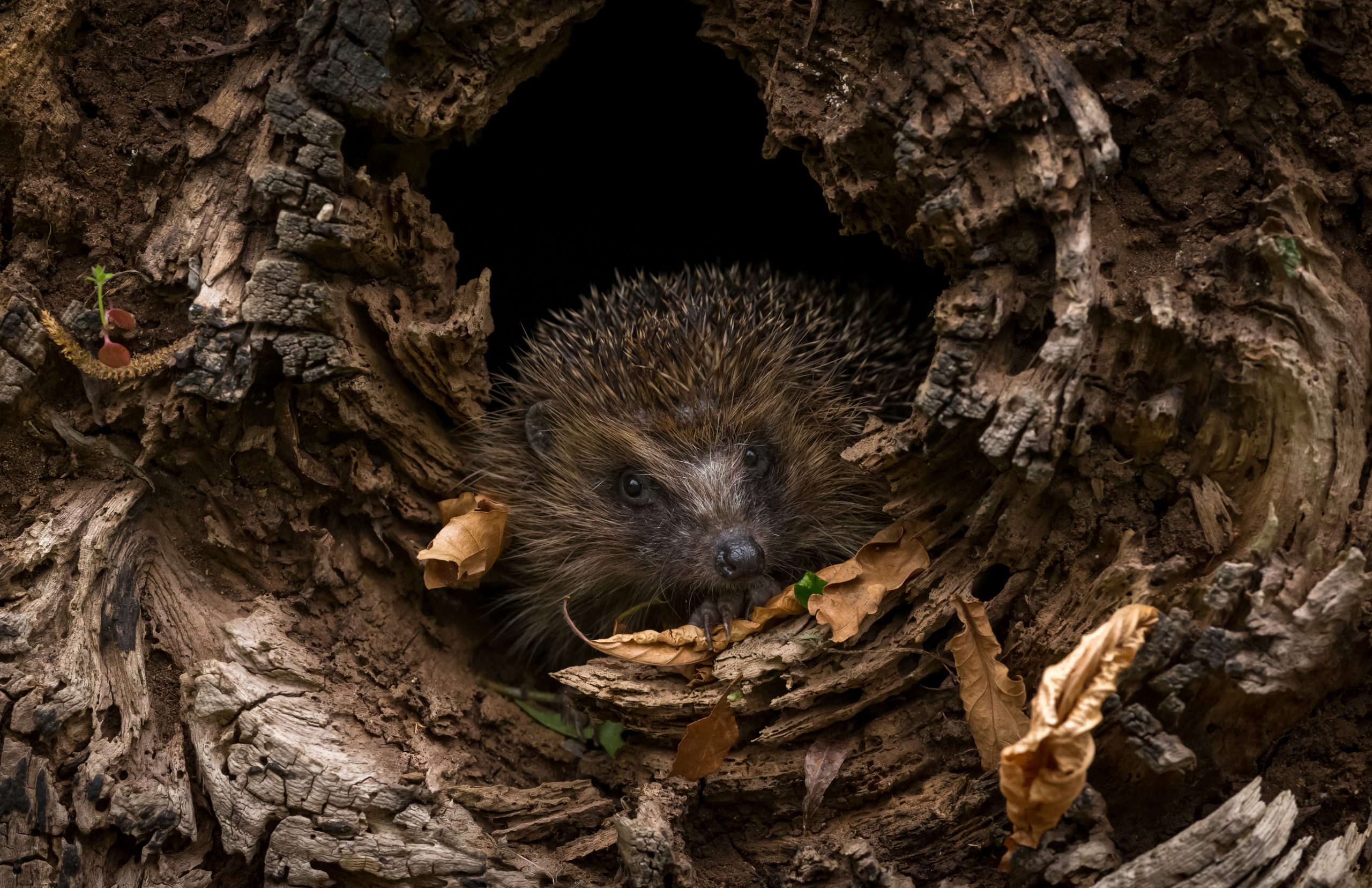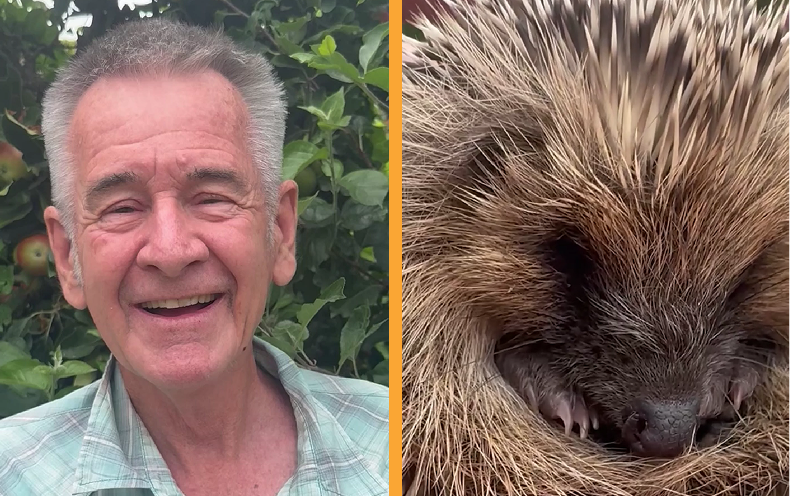Hedgehogs have long been a beloved part of British gardens, but their numbers have sadly been in decline. According to the People’s Trust for Endangered Species (PTES), hedgehog numbers have dropped by over 50% in rural areas and up to 30% in urban environments over the past two decades.
As gardeners and wildlife enthusiasts strive to make a difference, one of the most effective ways we can help is by improving the diet of these spikey little creatures.
Experts at Vale Wildlife Hospital are revealing the vital role that proper nutrition plays in the survival of hedgehogs and why a better diet can help save this iconic species.
1. Say No to Mealworms: Why They’re Not the Right Choice
While mealworms are often a popular option for feeding hedgehogs, they’re not the best food choice for these insectivores. Although hedgehogs may enjoy them as a treat, mealworms are too high in phosphorus and too low in calcium, which can cause Metabolic Bone Disease.
Experts at Vale Wildlife Hospital recommend choosing a food – like Vale’s™ Hedgehog Food – which offers a balance of protein, fats, and vitamins that hedgehogs need to thrive. By providing this supplementary food, we can help hedgehogs stay healthy and strong, ensuring they can successfully navigate their way through the changing seasons.
2. Hedgehogs Don’t Naturally Eat Slugs (Unless They Have To!)
Hedgehogs are often associated with eating slugs, but the reality is that they don’t actively seek them out. While hedgehogs are opportunistic feeders and will nibble on slugs and snails when food is scarce, their natural preference lies in a diet of insects like beetles, earthworms, and other small invertebrates.
Slugs, though part of a hedgehog’s diet when resources are low, aren’t a nutritious or healthy food source. In fact, hedgehogs typically avoid slugs if they can help it. By focusing on helping hedgehogs by offering a balanced and nutrient-rich food alongside their natural diet – like Vale’s™ Hedgehog Food – gardeners and animal lovers can ensure these creatures are getting the right nutrition and not relying on suboptimal food sources, like slugs, for survival.
3. Why Supplementary Nutrition Is Crucial for Hedgehogs’ Health
Proper nutrition is essential for hedgehogs, not just for their daily energy needs, but also for their overall well-being. Hedgehogs have very specific dietary requirements, including proteins, fats, vitamins, and minerals, which they typically obtain from insects and other small invertebrates. When hedgehogs don’t get the right balance of nutrients, their health can suffer.
Hedgehogs are particularly vulnerable during the colder months when food sources become scarce. Poor nutrition during this time can lead to weakness, illness and even starvation.
4. Why Supplementary Food Is Important for Hedgehog Survival
While hedgehogs can forage for food on their own, supplementary feeding is crucial, particularly during times when their natural food sources are dwindling. This is especially important in the autumn and winter months when insects are harder to find, and hedgehogs need to build up fat reserves for hibernation.
Providing hedgehogs with supplementary food ensures they can access the additional nutrients they need when natural food sources aren’t abundant. It can also support hedgehogs who may be struggling to find enough food or those in urban environments where food may be less accessible. Vale’s™ Hedgehog Food is specifically formulated to offer all the right nutrients to keep hedgehogs strong, healthy, and able to thrive in the wild.
“A better diet means a better chance for survival,” says Caroline Gould, Founder of Vale Wildlife Hospital.








